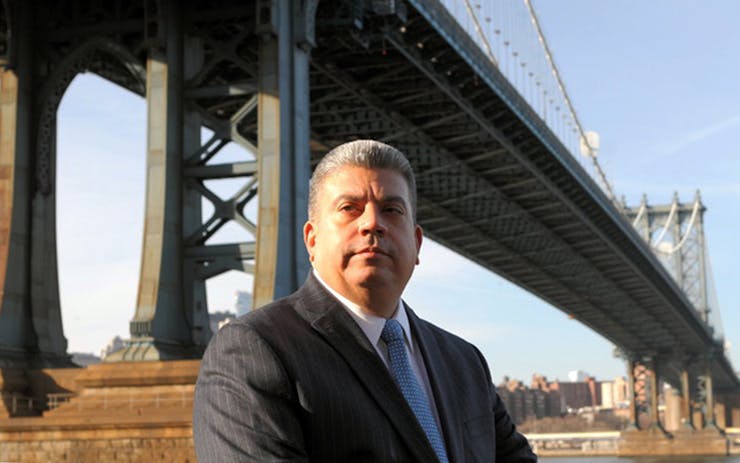Acting Brooklyn District Attorney Eric Gonzalez has long advocated against prosecuting low-level marijuana crimes, especially since taking office in 2016.
In an opinion piece on Sunday for City and State New York, Gonzalez as was highly critical of recent efforts made by AG Jeff Sessions to pump new life into the war on drugs. He reiterated his view that the drug war “incurred enormous costs” both financially and in terms of the effects on individuals and their families, especially among vulnerable communities.
“My views on this issue are shaped by my work as the district attorney in Brooklyn and the 22 years that I’ve worked in the office,” Gonzalez wrote. “While keeping the people of Brooklyn safe is my top priority, I also know that we are never going to incarcerate ourselves to safety and we are never going to change our communities by only putting people in prison.”
Gonzalez went on to argue that drug abuse should be treated primarily as a health issue.
Trying to solve the drug problem by imposing ever-harsher penalties in drug cases was a misguided strategy. Decades of growing prison populations, rising costs and high recidivism rates among people incarcerated for drug use have taught us that a different approach is needed, particularly at a time when we are seeing the opioid epidemic spiral out of control, with tens of thousands of Americans overdosing every year. Rather than forcing these people into the criminal justice system, we should be offering them the option of treatment and rehabilitation, as we currently do in Brooklyn.
In 2014, when then-District Attorney Ken Thompson announced that his office would no longer prosecute cases involving possession of small amounts of cannabis, Gonzalez wrote and implemented the policy, which he described as common-sense reform for law enforcement in Brooklyn.
“It freed up police officers and prosecutors to focus on serious threats to public safety,” he wrote. “It is improving the relationship between law enforcement and the community. And most importantly—it is making our criminal justice system fairer.”
Data out of New York show that black people are nine times more likely to be arrested for cannabis possession than white people.
While the Trump administration has advocated taking a strong law-enforcement stance on drugs, having recently pushed for harsh criminal penalties in a DOJ sentencing memo, Gonzalez’s piece advocates a rehabilitative approach:
While Attorney General Sessions is now directing federal prosecutors to pursue the most serious charges in every case, we did the opposite. We examined each case on its merits and determined the charge that would hold offenders accountable, provide justice to victims and their families and provide the opportunity to rehabilitate offenders and return them to their families and communities.”
Gonzalez closed by noting that last year was the safest in Brooklyn’s history, which he attributes in part to the city’s selective approach to enforcement.
“Public safety does not require us to adhere to an outdated and ineffective ‘tough on crime’ approach. Instead, we need to be smart on crime, which is what we have done in the Brooklyn District Attorney’s office.”





